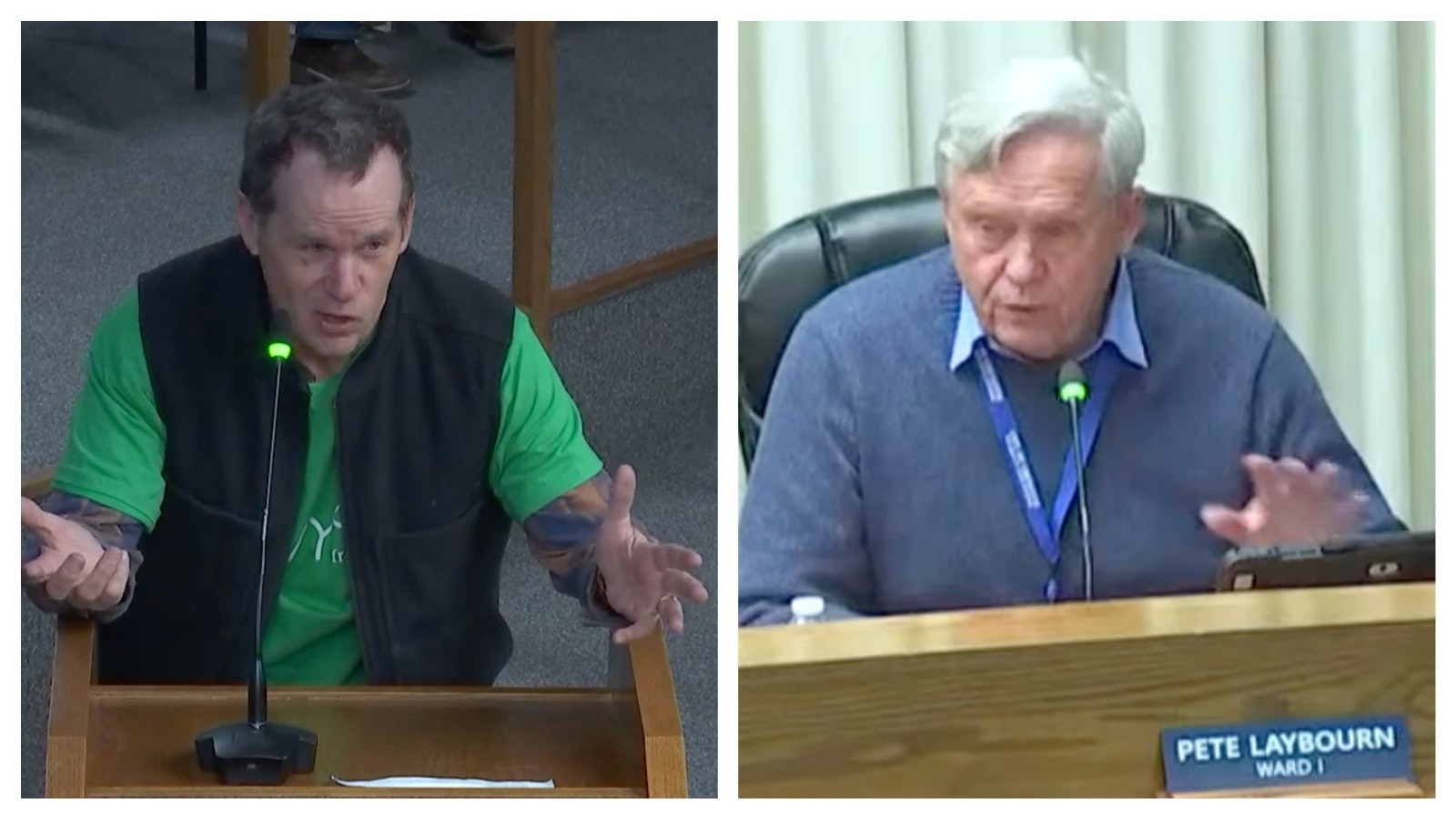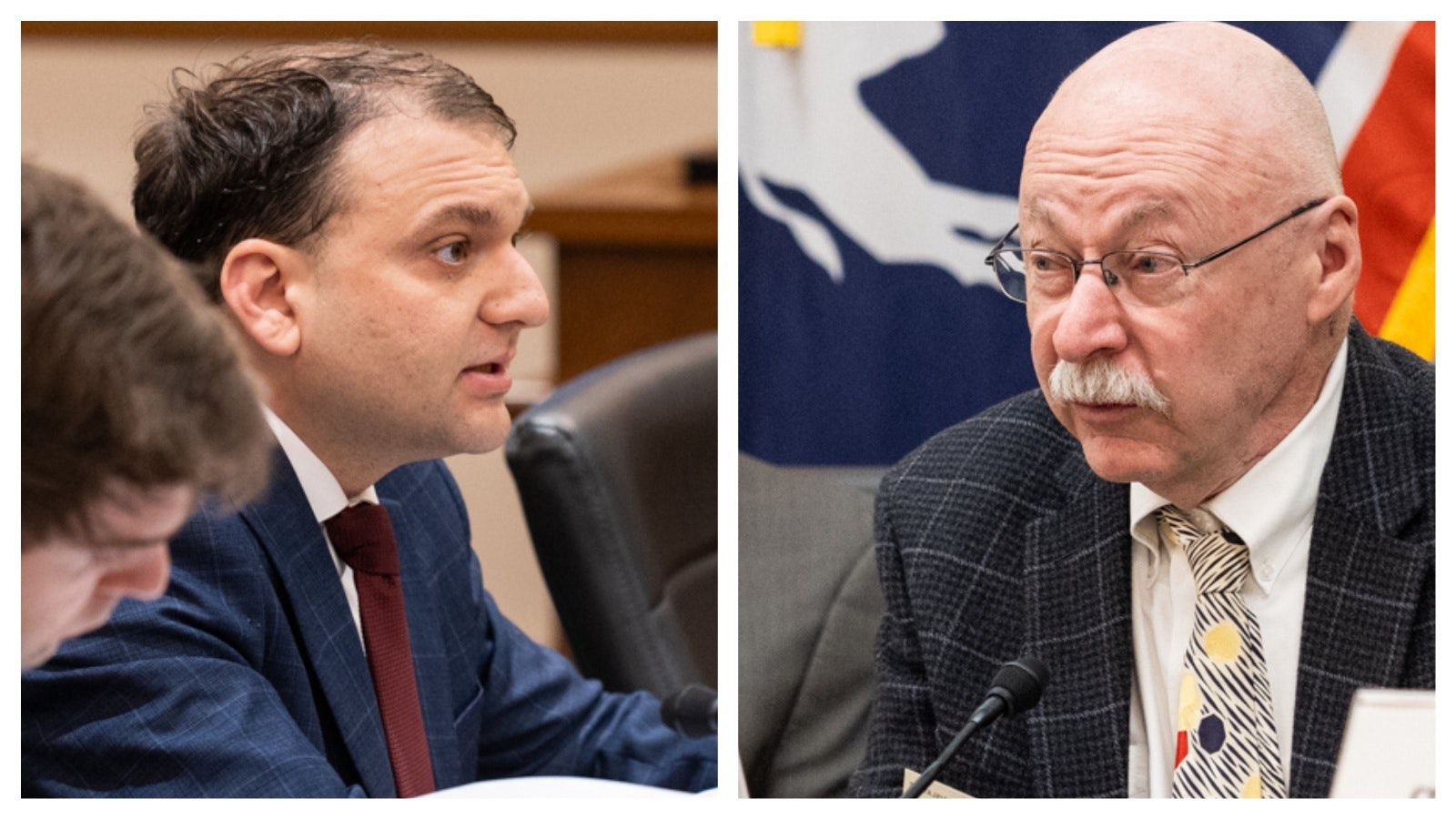The Wyoming Senate is considering a bill that would ban public money going to support sexually explicit events and entertainment after a committee advanced the bill Wednesday on a 3-2 vote.
With the approval of the majority of the Senate Revenue Committee, House Bill 134 heads next to the Senate Floor.
If it becomes law, it would ban public taxpayer support toward any show, exhibition or presentation that “lewdly or lasciviously” shows or simulates nudity, sexual conduct, sexual excitement; real or fake genitals or breasts.
The bill contains a carveout exempting sex education.
It would also ban public facilities from letting such events happen in their facilities, or letting the organizers use their equipment.
The bill designates each local, state, and college’s governing entities or boards as the groups responsible for determining whether certain events are sexually explicit, but would let concerned people appeal those findings under the Wyoming Administrative Procedure Act, which in turn says people badly affected by government agencies’ choices can appeal to the courts.
Any event organizer who received state or federal money for a sexually-explicit event would have to return the money within 20 days of such a finding, under the bill’s language.
The Drag Show That Started It
Bill sponsor Rep. Joel Guggenmos, R-Riverton, touted the bill as a chance to rein in taxpayer spending on events “some may find inappropriate or offensive.”
He alluded to an instance last spring when the Wyoming Department of Health — which is under the state executive branch — gave a $3,000 grant to a nonprofit group’s AIDS prevention and awareness fundraiser, which featured a drag show.
The group, Wyoming AIDS Assistance, advertised the show as “Rated ‘R’ — REALLY not for kids!” It was expected to be “complete with salty language, dirty jokes and booze-a-plenty, parental discretion is strongly advised!”
Sexy Ankles
Sara Burlingame, executive director of LGBTQ-advocacy group Wyoming Equality, said the bill’s language is overbroad and could implicate shows that some find too sexy, and some find benign.
“You’ve just open the door wide,” said Burlingame. “To the clear display of an ankle; uncuffed sleeves — things a reasonable person could say, ‘I find that exciting and gratifying.’”
Erin Taylor, with the Wyoming Association of Community College trustees, also alluded to that broadness, saying theater programs found in community colleges can have edgy, debatable subject matter.
But each community college and the University of Wyoming has its own board of trustees overseeing its budget, she added.
“They are the stewards of those dollars, just like you are the with the state funds,” said Taylor, addressing the committee members.
Mike Smith, vice president of government affairs for the University of Wyoming, said the bill as written could run into First Amendment problems. In many places throughout the university, the First Amendment limits it from over-restricting people’s shows and expressions.
“Outside of kind of, reasonable content, manner, and place restrictions under the First Amendment, we try to say, ‘Look, you’re going to hear and see a lot of things on campus that you don’t agree with — and that’s part of being at a university,’” said Smith.
Smith worried about the portion of the bill banning government facilities from letting the potentially lewd shows use their buildings or equipment.
Sen. Cale Case, R-Lander, tried to remove that portion of the bill and limit its public-support restrictions to dollars and paid employees, but the committee rejected his proposed amendment.

Shakespeare
Case proposed another amendment, which the committee adopted, removing a portion of the bill that would have cast drag queen shows as sexually explicit.
Guggenmos said they have a track record of being sexually explicit.
Case indicated that’s not an organized enough understanding to codify into law, and he spoke of plays and shows that are about cross-dressing.
He made a few references to William Shakespeare, who besides working with all-male casts, also wrote “The Twelfth Night, or What You Will,” which is about a woman who disguises herself as a man.
Doesn’t Ban The Events Though
Sen. Tim French, R-Powell, noted that the bill wouldn’t ban sexually explicit events, just public support and housing of them.
“I don’t think it’s making a judgment on these different activities; it’s just saying, ‘You know, I don’t want my hard-earned money going to pay for this event,’” said French.
Senate Revenue Committee Chair Troy McKeown, R-Gillette agreed, but in more colorful terms.
“I couldn’t hire five strippers and have my friends over and have the state pay for it,” said McKeown.
Burlingame countered, saying she believes bills like this one target drag queens, “which are a very small percentage of our population and, as I have mentioned, raise money and do a lot of good for our communities.”
Sex Cases
Elisa Butler, state coordinator for the Wyoming Judicial Branch, voiced a concern that the bill as written could prohibit state courts from airing evidence of sexual assault and other sex crimes.
“We use state funds, state personnel, state facilities, state equipment to present those kinds of cases to judges and to juries, to make those determinations,” she said.
The committee did not add a court-case carveout Tuesday.
Clair McFarland can be reached at clair@cowboystatedaily.com.





